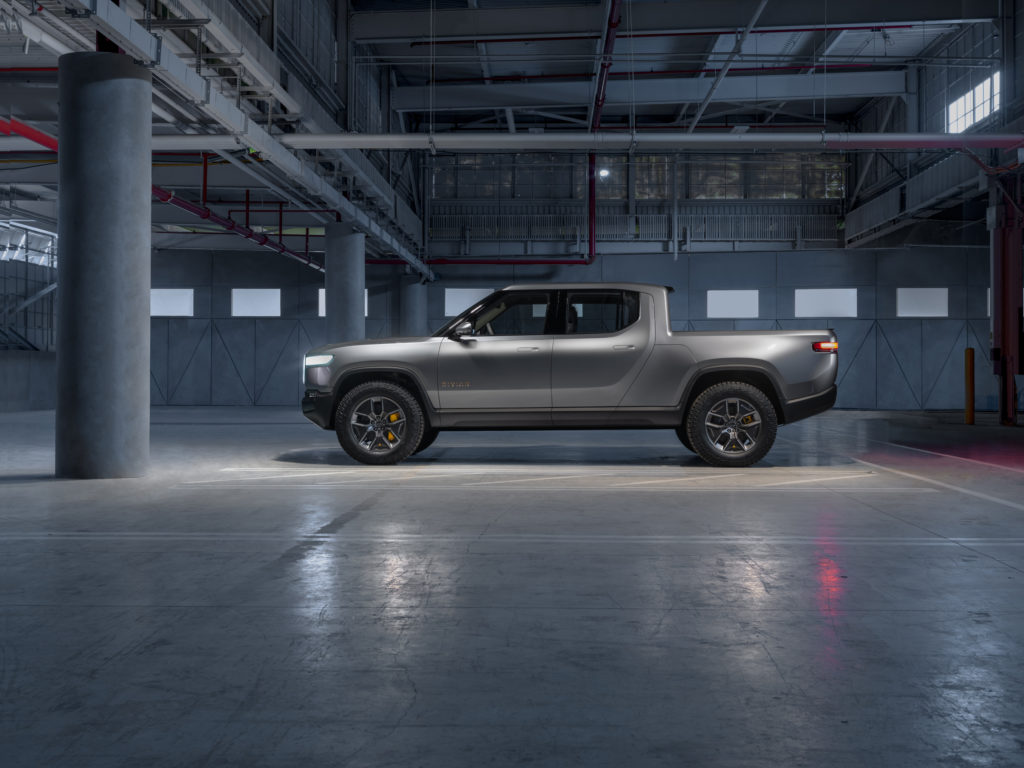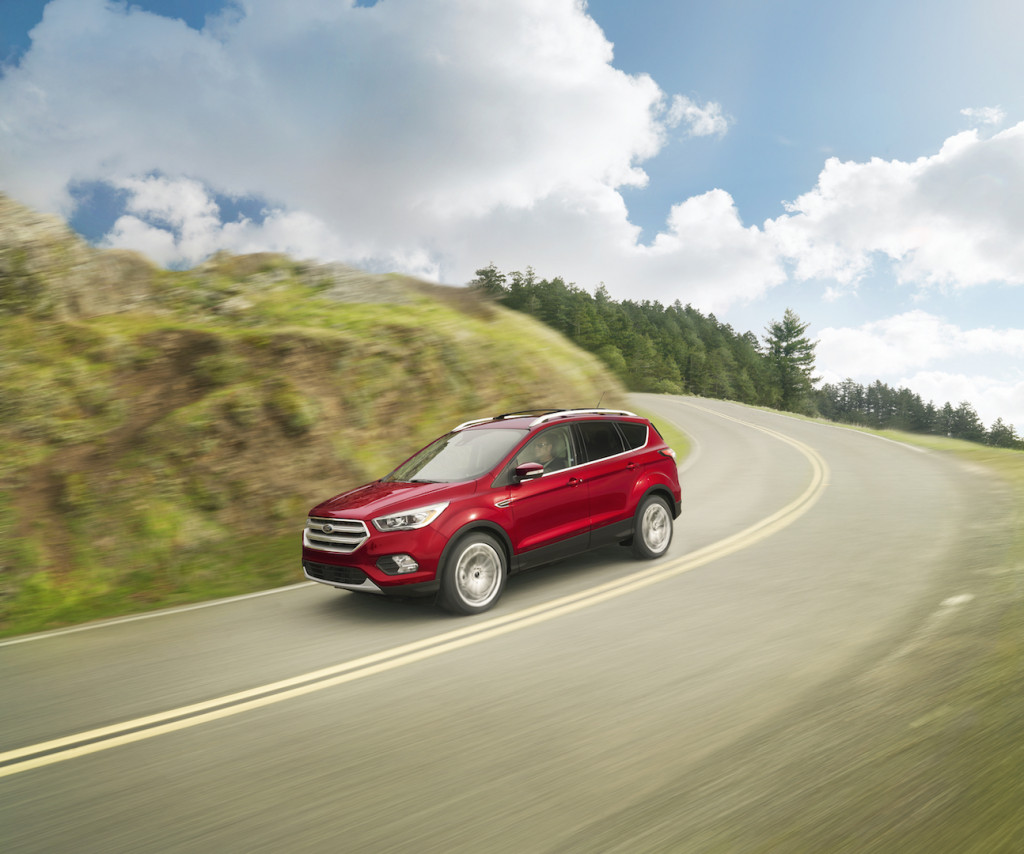Which hybrid model was cancelled and won’t return for 2020?
Which hybrid crossover was finally confirmed for the U.S.?
And what sound should your electric car be making?
This is our look back at the Week In Reverse—right here at Green Car Reports—for the week ending September 20, 2019.
Two big, unresolved stories hovered over the green-vehicle sector at the end of the week. Friday we wondered about the importance of electric-car and battery manufacturing in the GM-UAW strike, as it started to affect suppliers—and supplier jobs. And the Trump administration’s announcement Wednesday that it would revoke California’s emissions authority was followed by an unsurprising next step: a lawsuit in which California is suing the EPA over its environmental rollbacks.

Uber self-driving prototype in San Francisco
Amazon ordered 100,000 fully electric delivery vans from Rivian—and in doing so helped further solidify Rivian’s future as a maker of electric pickups and SUVs.

Rivian R1T electric pickup concept
Two safety results released by the IIHS proved that electric cars offer just as much (if not more) occupant protection as their gasoline counterparts. The Tesla Model 3 won a spot on the Top Safety Pick+ shortlist, while a new test for the Chevrolet Bolt EV completed a set of ratings that are at least as good as Chevy’s Trax crossover.
Based on the suggestion of automakers, the federal government is proposing a change to its rules regarding the sounds electric vehicles need to make at low speed. It could mean that you have a lot more choice.
Some of the team behind the original Tesla Powerwall is involved in a new project aimed to revolutionize the home electrical panel—and make it part of the Internet of Things.

2019 Ford Escape
We drove the 2020 Ford Escape Hybrid, and couldn’t help but wonder whether it’s worth waiting for the upcoming plug-in hybrid version.
In product news, the slow-selling Chevrolet Malibu Hybrid has been cancelled, as the brand pivots away from hybrids and plug-in hybrids and toward electric vehicles. The Malibu Hybrid borrowed its core hybrid system from the discontinued Chevy Volt—minus the extra plug-in range.
Honda finally confirmed the CR-V Hybrid for the U.S. this week; it will arrive in early 2020, with front- or all-wheel drive versions for the U.S., and fuel economy ratings that are expected to top 40 mpg. And the 2020 Toyota Prius returns with a bigger, better infotainment system for base models and CarPlay and Alexa for all.

2020 Honda CR-V and CR-V Hybrid
Mercedes-Benz says that it’s been intentionally playing it safe with battery management and range, in the interest of the longevity and safety that upholds the brand’s reputation. However mid-week we also reported on a survey that in a self-driving future brand might not matter quite as much.
VW’s U.S. CEO made perfect sense about why an electric crossover will arrive a couple of years before the brand’s much-anticipated Microbus revival. Short answer: Selling a lot of vehicles takes precedence over a niche product. Answers on how VW’s electric cars will be priced in the U.S. were a little less clear at this point—potentially relying on an “apples to apples” comparison wrapping in ownership costs and what can become some fuzzy math.

Volkswagen ID Crozz II concept, 2017 Frankfurt auto show
The Chinese battery supplier CATL announced that it’s considering a U.S. plant and has some high expectations for improving energy density over the next few years. And as a sign of a technology wave set to sweep across the EV field over the next decade, the supplier Delphi has revealed an 800-volt inverter that’s due in a high-performance vehicle from a major automaker in 2022.
One of our biggest stories of the week caught us a little bit by surprise. We thought Electric GT’s “crate” engine idea for electric-vehicle conversions was really novel and cool, and we’re glad you did, too.
_______________________________________













